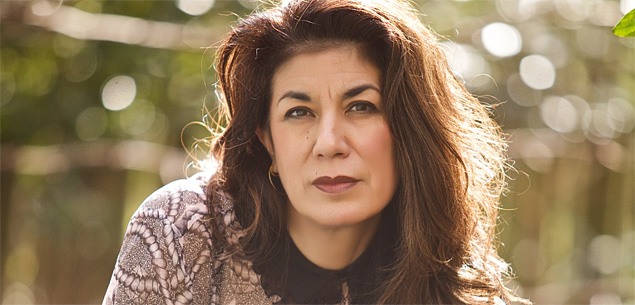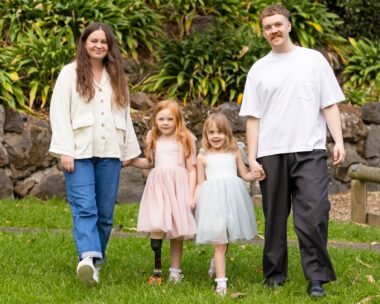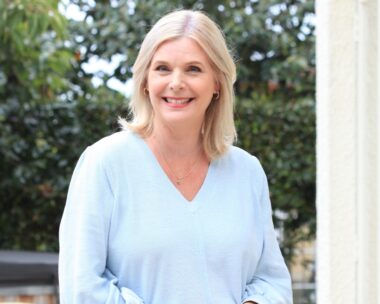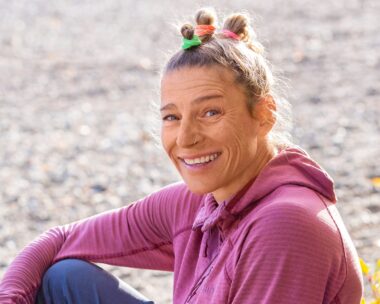Kiwi businesswoman and aid ambassador Vivien Bridgwater was prepared to face heartbreaking conditions in a large brothel in Bangladesh, but nothing could prepare her for a freak tuk-tuk accident which could have cost her her life.
In her role as chair of Save the Children New Zealand, Vivien travelled to Daulatdia to visit a brothel community where 3000 people, including 1500 sex workers and 950 children, live and work in squalor. But although the conditions were trying, Vivien’s biggest test was still to come. Later in the trip, she was out with colleagues in New Delhi and they decided to take a 10-minute ride in a tuk-tuk back to their hotel.
The ride cost the equivalent of 20c in New Zealand, but Vivien is still counting the true cost of the resulting accident, which almost sliced off her hand, severing the top of her index finger and stripping skin from her middle finger. When their tuk-tuk was shunted from behind by a car, it flipped, leaving Vivien trapped inside, her hand scraping along the road until the vehicle finally came to a halt.
“I was on the inside looking at the road coming towards me – I instinctively put my hands out to stop my face and body falling into the road. I think that’s why it’s so deep to the bone,” she says from her Auckland home two months after the accident. After being taken to hospital, Vivien (56) had the excruciating experience of her hand being stitched without anaesthetic.
Fortunately, her son was scheduled to arrive in India the next day and contacted a family friend in the area who was able to get Vivien treated at a private hospital. She was rushed into surgery and spent the following week in hospital but wasn’t allowed to leave the country for two weeks.
“I believe I’m lucky to have my hand and I’m lucky to be here,” says the mum-of-three. But Vivien’s hand will never be the same again and she’s been warned it may take a year before she regains full use of it. She is anxious about what her fingers will look like once the bandages are removed.
As a high-powered career woman, Vivien, who currently works as general manager at AUT University, has found it particularly hard not having any control over the healing process. “I didn’t realise how many things you couldn’t do; undoing mascara or screw tops – laces and zips are impossible. One thing that really upset me was trying to operate the mouse on my computer,” says Vivien, who is still unable to drive. “I’m not good at asking for help,” she says. “I’m normally of the mind-set that a glass is not just half full, but full, so this has been an interesting test.”
But after what she witnessed at the Bangladesh brothel and in the slums in India, Vivien knows she is lucky. “My injury is nothing compared to what I saw,” she says. “We live in paradise in New Zealand.” The Daulatdia brothel is set out like a shantytown, where prostitutes and their families share a tiny room, which just fits a double bed.
“They’re like tin shacks and there are about 3000 men who come to visit every day. When we were there, the train arrived and there were hundreds and hundreds of men who hopped off,” she recalls. “Until Save the Children went into these communities, the government wouldn’t fund schooling for the children of prostitutes. Now we’ve partnered with them to make sure there is education.”
And although Vivien could be forgiven for not wanting to return to the countries where Save the Children works in slums and factories, she is grateful for the chance to see another side of life. “A lot of people have said that I will never go back but I’d really like to take my daughter to Bangladesh. There were girls in the brothel that were easily 13 and my daughter Diva is 16. “I know I left part of myself in India but I also found part of myself there.”




